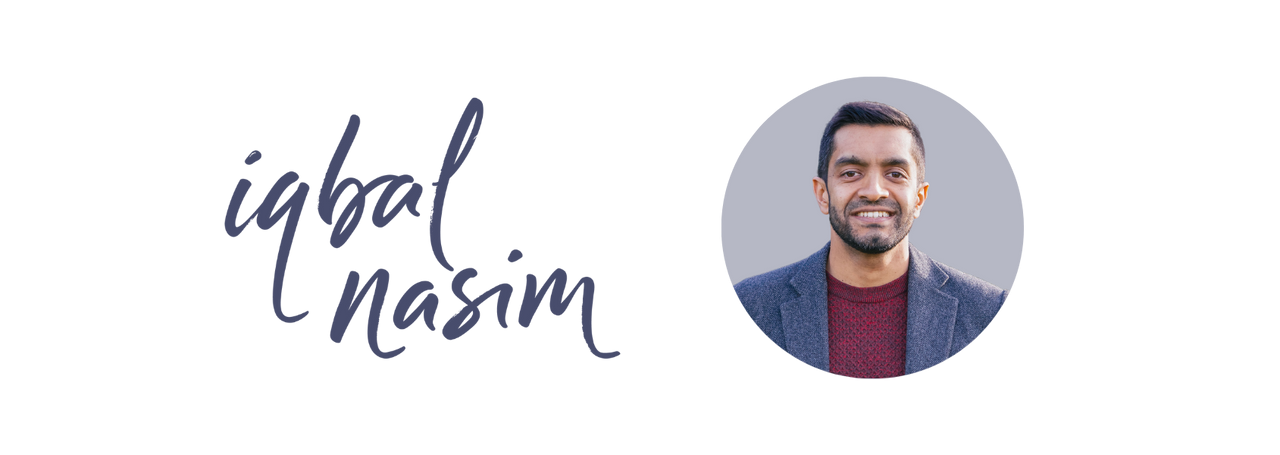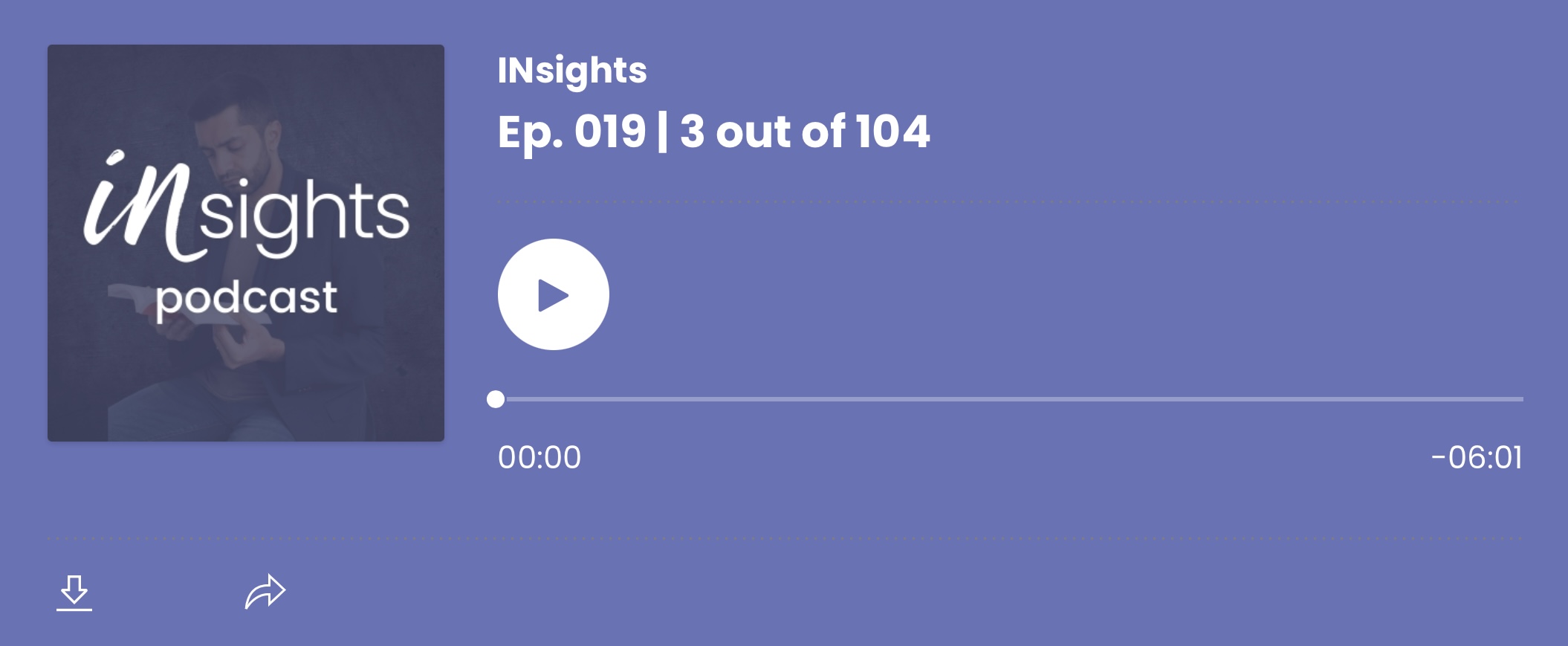3 out of 104
INsights 019, Friday 15th July 2022
3 out of 104
INsights 019, Friday 15th July 2022
Assalamu-alaikum, Peace be upon you.
Here’s something a little different for today’s edition of INsights…
Ever since the beginning of 2015, I’ve kept a folder in my iPhone Notes app which I’ve labelled ‘Reminders’.
Whenever I’ve come across something particularly powerful, I copy and paste it there. Then whenever I feel I need some direction or inspiration, I scroll through and read a few to get me back on track.
There are currently 104 entries in that folder… and below is a small but powerful sample of just three of them: on ‘Eid, on the value of time and on prayer.
I hope you find them just as beneficial and motivating as I have done.
You can listen to or download an audio file of this edition of INsights by clicking here.
Or if you prefer to read then simply keep scrolling.
On the true significance of Eid ul-Adha
“If the hearts of the Muslims pronounced the takbir (i.e. saying ‘God is greater’) as much as their tongues do on ‘Eid, then the face of history would have changed.
If they always gathered as much as they do for Salat al-‘Eid, then they would have defeated their enemies.
If their souls embraced as much as their hands shake one another, then they would have been able to deal with their differences.
If their souls smiled as much as their lips do, then they would have been with the people of the heavens.
If they sacrificed their ego and selfishness as much as they sacrificed their animals, then all of their days would have been ‘Eid.
And if they had worn the garments of good character like they wear the best of clothes, then they would have been the most beautiful community on the face of this earth.”
On the value of time
"You should not waste your time, doing at any moment whatever chances to present itself when it presents itself. Instead, you should take stock of yourself and structure your acts of devotion during each day or night, assigning to each period of time some specific function that is kept to and is not left for something else in that time. In this way the blessing of your time will become evident.
But if you leave yourself to drift, aimlessly wandering as cattle do, not knowing what to occupy yourself with at each moment, you will squander most of your time.
Your time is your life; your life is your capital through which you spiritually transact [with God] and through which you reach endless bliss in the proximity of God. Every breath you take is a priceless jewel that cannot be replaced. Once it passes, it can never be retrieved.”
On prayer
To worship according to one vision of man, and to live according to another, will inevitably provoke conflict in the soul. Some religions today allow their followers to live a fully mainstream, 20th century lifestyle outside the place of worship. But Islam knows that this is absurd. The focusing on the divine presence during Salat relativises and transforms our vision of everything else.
When we turn away from the Ka‘ba again, we say, to right and left, as-salamu alaykum. The reconnection with the exquisite and ancient sacred centre brings a new attitude to the rest of our lives. ‘The salat bars us from corruption and ugly behaviour.’ That is, if it is done well, with hudur - presence of mind and spirit - then the rest of our behaviour will be refined. Poor manners, crude language, lack of compassion for others, are all sure signs that we are offering salat incorrectly.
This means that Islam does not distinguish between our lives of worship, and anything else in our lifestyle. And it means that the starting point for putting our communities right, is the establishment of the prayer, which redirects us to the point on which we are all united. Not only through public observance in the mosque. It is possible to go through the motions of the prayer, and pay no attention; and this is almost worthless.
The hadith says, 'The worshipper in salat is credited only with that of which he was conscious.’ And al-Hasan al-Basri said: ‘Every prayer in which the heart is not attentive is nearer to punishment than it is to reward.’
A besetting problem we face, which symbolises all our other spiritual problems, is that of the mechanical prayer: we proclaim Allahu akbar, but immediately show that we don’t know what Allahu akbar means. We turn on a kind of autopilot, awakening from a vague somnolence some minutes later with the salam.
This is no good. Moving the body, and letting the tongue dance cleverly around the palate, are of no help to us. The very word salat signifies connection. There is little point in having a lamp if we don’t switch on the electricity: and the electricity comes through khushu‘ - attentive humility, an awareness of the majesty and nearness of our Lord, and all the divine beauty and rigour of which the Holy Ka‘ba is the emblem.
The act of salat brings us home: to the earth. The name of Adam, ‘alayhissalam, is said to be derived from adim - earth, dust. And Allah says that ‘He created him of dust.’ By pressing the forehead to the ground we recall our created and fleeting lives. ‘From it did We create you, to it do We return you, and from it shall We bring you out one more time.' Three encounters with the earth - and we can escape none of them.
Before you go...
In case you missed them, here are links to some of my recent videos:
- Eid-ul-Adha Khutbah (12:33)
- Interview: Your Career is Dead... Here's How to Fix It (27:22)
- IN Perspective 'Ask Me Anything' 4-part series
- Complete the Qur'an 29-part series
Let me know how you found this edition of INsights by clicking on one of the words below:
To read previous editions of INsights, click here and scroll down to the bottom of the page.
If you use the Telegram app and you’d like to join a community of 2,000+ believers where I share short, regular insights, click here.
Have a blessed fortnight. I'll see you in two Fridays, God willing.



